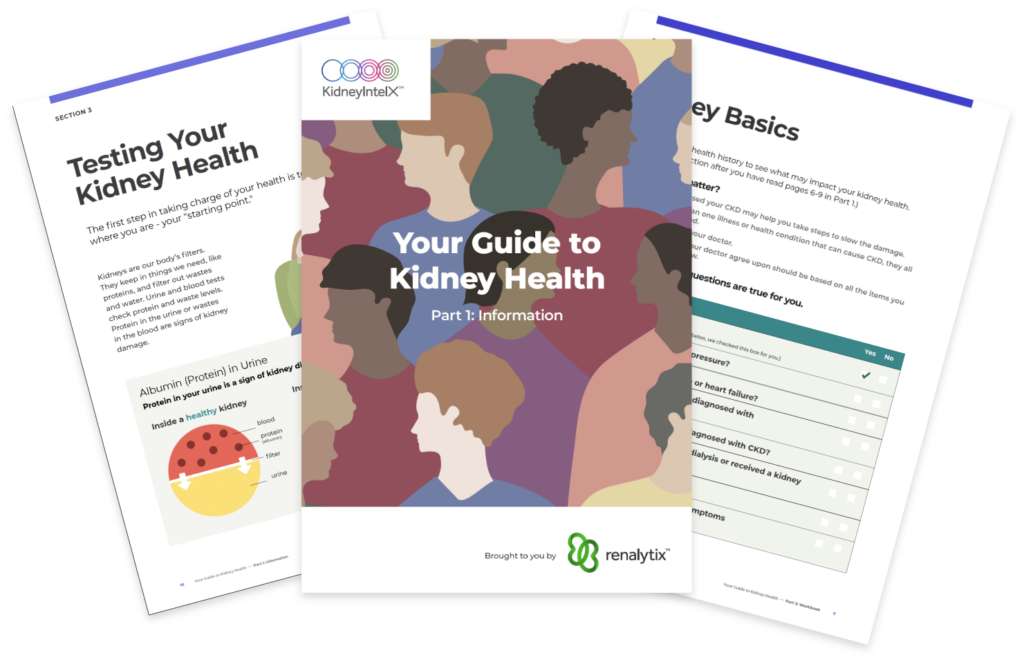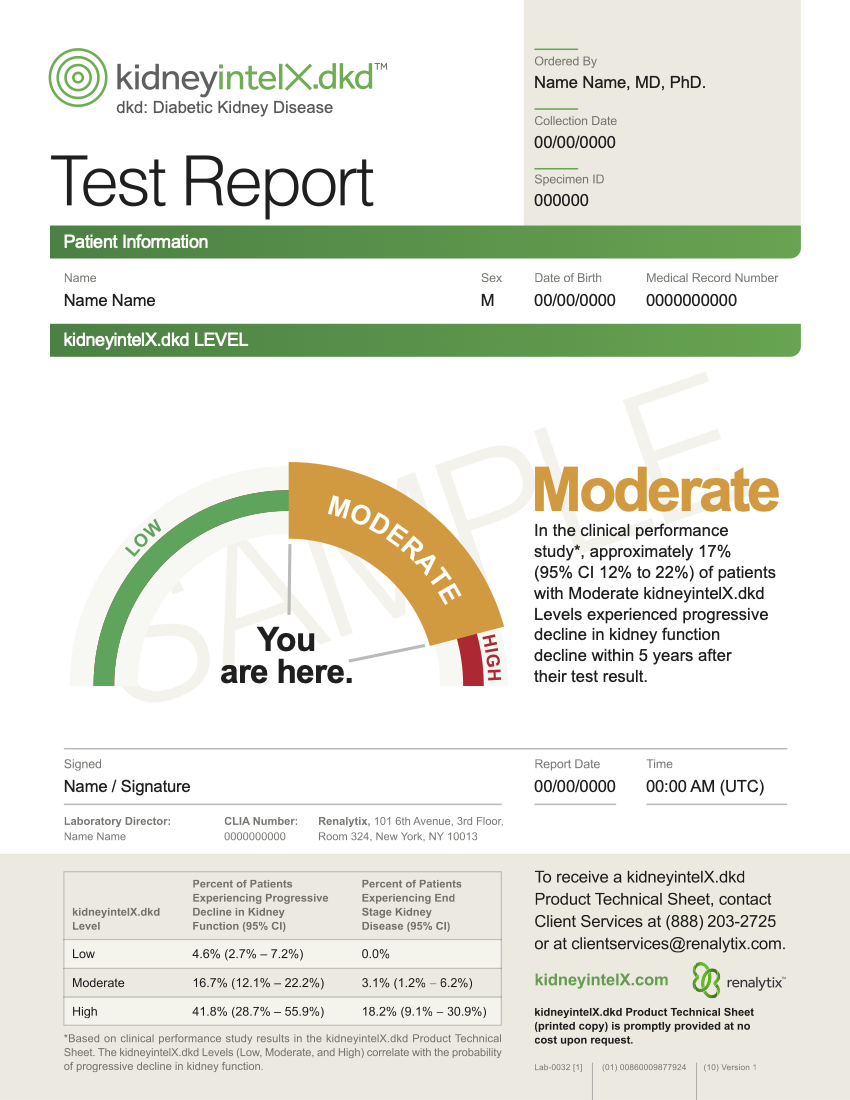FACT 1
Current kidney function measurements (eGFR and UACR) are used to diagnose kidney disease, but they cannot be used to predict which patients are at higher vs. lower risk for progressive decline in kidney function.
Read about it here.
FACT 2
Now there is an FDA-approved test, kidneyintelX.dkd™ that has been clinically validated to accurately assess the risk (Low, Moderate, High) of progressive decline in kidney function in adult patients with type 2 diabetes and chronic kidney disease, stages 1-3b.
To learn more about the results provided to the FDA, read our Product Technical Sheet here.
FACT 3
When clinicians combine information gathered through kidneyintelX.dkd, clinical examination, and cardio- and reno-protective therapies in the early stages of CKD, it’s a win-win. They will know which patients are at higher to lower risk for CKD progression, and therefore, can appropriately target resources and medications shown to be more effective at slowing or preempting disease progression and advancing kidney health.
Further, because diabetic kidney disease has been demonstrated to significantly increase the risk of cardiovascular events, early intervention is critical for kidney health, heart health, and overall health too.
See our Evidence here.
FREE EDUCATIONAL RESOURCES FOR YOUR STAFF AND PATIENTS

FREE EDUCATIONAL
RESOURCES FOR YOUR
STAFF AND PATIENTS
This valuable Guide and complementary Workbook provides simple, step-by-step guidance for how your patients can improve their kidney health in consultation with you and your staff.
This valuable Guide and complementary Workbook provides simple, step-by-step guidance for how your patients can improve their kidney health in consultation with you and your staff.
FACT 4
Type 2 diabetes is the leading cause of chronic kidney disease (CKD), representing nearly 40%1 of its cases.
Despite its prevalence, nearly 90% of these adults are not aware that they have the disease. That’s because early-stage kidney disease typically has no symptoms. That’s why the American Diabetes Association (ADA), the Kidney Disease Improving Global Outcomes (KDIGO), and the American Academy of Family Practitioners Guidelines all recommend both eGFR and UACR testing, once a year, for adult patients with type 2 diabetes.
And if diagnosed with early-stage CKD, kidneyintelX.dkd may be added to the care plan, to identify those patients who are at higher risk for disease progression.
Once you know who has DKD, understand the risk
for its progression.
When your adult patients with type 2 diabetes are also diagnosed with chronic kidney disease, you’ll still need to identify who will need lower-level maintenance or ongoing monitoring and management or immediate lifestyle and therapeutic adjustments and referrals to a specialist.
The kidneyintelX.dkd test has been clinically validated to accurately assess the risk (Low, Moderate, High) of progressive decline in kidney function in adult type 2 diabetes patients with chronic kidney disease (stages 1-3b). See our Product Technical Sheet for intended use parameters here.


